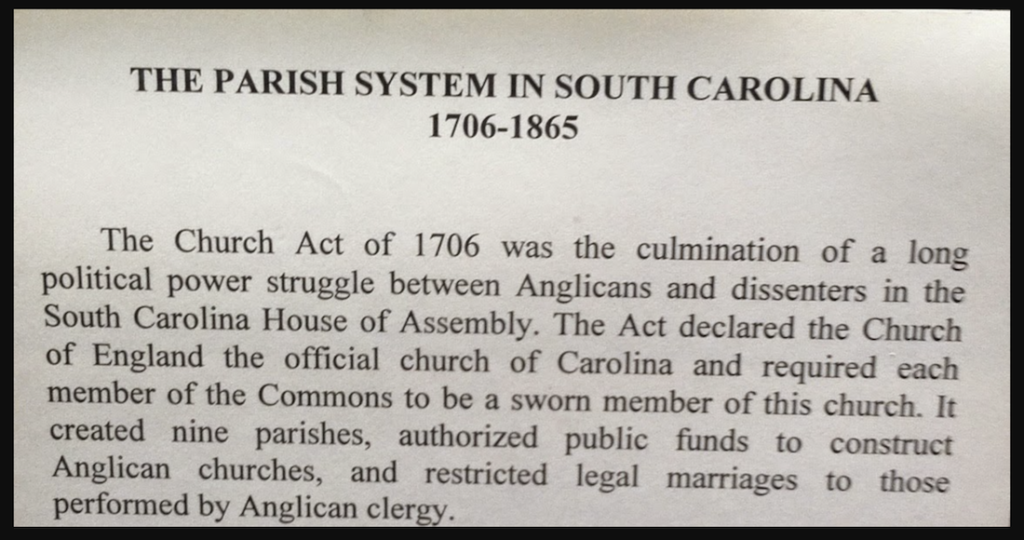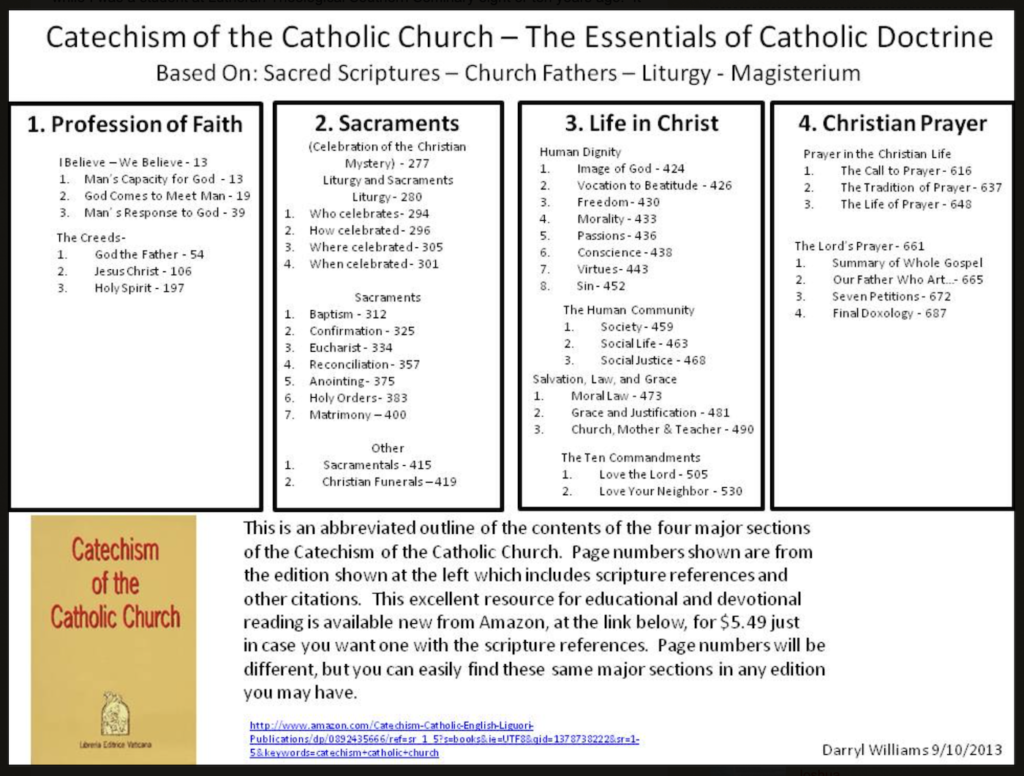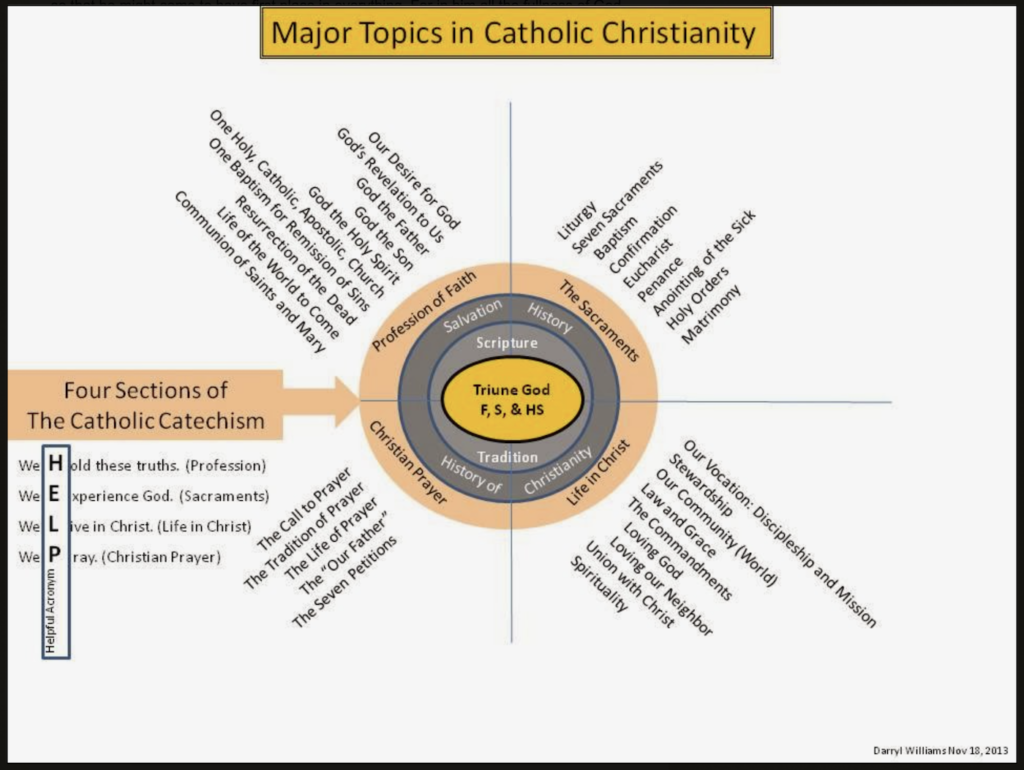Below is a short paper I wrote in May, 2002, to fulfill a requirement for a Lutheran Theological Southern Seminary course, Introduction to Theology. The professor was Dr. David Yeago, prominent Lutheran theologian, who was always challenging us to do a better job of “unpacking” the texts we were studying or quoting and who must have been frustrated and disappointed with the short and simplistic essays we students wrote in response to his deeply challenging lectures and writings. But, it was a privilege to sit in his class and see him at work. There is an interesting sample of his work, The Catholic Luther, published in First Things, March 1996.
Christian Existence: Human Reality and Divine Mystery
Darryl K. Williams
May 6, 2002
HT252 – Introduction to Theology
Introduction
Christians realize they cannot understand and usually don’t question the miraculous work of grace God does in the hearts and minds and souls of individuals to bring them to salvation from sin, death, and the devil. We accept that work of the Holy Spirit as a divine mystery. We accept that God chose us, and we give thanks for it. But it is a mistake to focus on that choice as bearing only on our eternal destinies and ignore what Scripture says about the responsibilities of Christian existence.
Just as there are both divine mystery and human reality of Christ, represented by His two natures, there are both divine mystery and human reality of Christian existence. If we are “
created in Christ Jesus for good works, which God prepared beforehand to be our way of life,”
[1] how are we to know what those good works are, and how are we able to accomplish them? What is this “
way of life” intended for the Christian, and what is the role of the Church in it? It is the purpose of this short paper to give brief and superficial and incomplete, though hopefully not incorrect, answers to these questions which have occupied the minds of great thinkers and spawned volumes of brilliant writing through the centuries.
The Human Reality of Christian Existence
Salvation in the New Testament is both event and process, and source of both assurance and hope. Jesus certainly talked to His followers about final judgment, a place in His Father’s house, paradise, and mansions, but He talked more about the reality of challenges of the Christian life. He restated and explained the application of the Old Testament law to the daily life of the believer. He also carefully taught the appropriate relationship between the believer and God in his instructions on prayer and worship. For Jesus, the point was not to just hang in there hoping for escape from punishment and a great reward sometime in the future but to live an unselfish life of love and worship and service to God and fellow mankind.
Also in support of salvation as both event and process, St. Paul, in his epistles to the churches, wrote of believers having been saved
[2], being saved
[3], and hoping for
salvation.
[4] Paul’s emphasis, like that of Jesus, was on the Christian life in the Church beginning with its starting point or initiation, baptism. For both Jesus and Paul, Salvation begins “now,”
[5] not at the time of death. And with salvation comes a tension because the person is, as Luther wrote, “…
at one and the same time righteous in Christ and sinful in his own flesh:
simul justus et peccator.”
[6] That is a serious condition making the life of the believer into a battlefield and putting the believer at odds with the world. The battle that rages is probably what Jesus referred to when He said:
Do not think that I have come to bring peace to the earth; I have not come to bring peace, but a sword. For I have come to set a man against his father, and a daughter against her mother, and a daughter-in-law against her mother-in-law; and one’s foeswill be members of one’s own household. Whoever loves father or mother more than me is not worthy of me; and whoever loves son or daughter more than me is not worthy of me; and whoever does not take up the cross and follow me is not worthy of me. Those who find their life will lose it, and those who lose their life for my sake will find it.[7]
Jesus said that He had come that we might have life and “
have it abundantly,”
[8] but He never promised that it would be an easy life. His demands for change are echoed in St. Paul’s words to the church at Rome; “
Do not be conformed to this world, but be transformed by the renewing of your minds, so that you may discern what is the will of God—what is good and acceptable and perfect.”
[9] Certainly, the whole message of Jesus, confirmed in the writings of St. Paul, was about transformation of lives in the pattern of the change in the lives of His first followers from fishermen to
“fishers of men.”
[10]What did Jesus intend for the life of the believer? From His word and example we know that Christians are to live lives of prayer and to love and serve and worship God and to love and serve each other.
[11] We are to subject ourselves to the discipline of study of scripture and to the discipline we learn from Scripture.
[12] Christians are to be the salt of the earth and the light of the world.
[13] Life should be better for all because we are here. We are to tell the Gospel story and baptize in the name of the Father, the Son, and the Holy Spirit.
[14] We are to avoid judging each other
[15] and let the weeds grow with the wheat until the time of harvest.
[16] Based on the example of Christ, we should associate with and witness and minister to the un-popular and the sinful and the disreputable as He did with Samaritans and lepers and tax collectors. As citizens of Heaven and Earth, we are instructed by Jesus to “
Give therefore to the emperor the things that are the emperor’s, and to God the things that are God’s.”
[17]To live such a life is a challenge faced by every believer and a challenge that cannot be met under one’s own power. St. Paul left a very personal written testimony about the human reality of Christian living, saying “
I do not understand my own actions. For I do not do what I want, but I do the very thing I hate,” and concluding, “Who will rescue me from this body of death? Thanks be to God through Jesus Christ our Lord.”
[18] Martin Luther described the human reality of Christian life in his famous phrase from The Freedom of A Christian, “
A Christian is a perfectly free lord of all, subject to none. A Christian is a perfectly dutiful servant of all, subject to all.”
[19] Luther makes it clear that motivation is the key and that the motivation for good works can never be for one’s own benefit. “
Man, however, needs none of these things for his righteousness and salvation. Therefore he should be guided in all his works by this thought and contemplate this one thing alone, that he may serve and benefit others in all that he does, considering nothing except the need and the advantage of his neighbor.”
[20] In Life Together,
[21] Dietrich Bonhoeffer described the conflict that results from our desire for self justification. That sinful desire leads us to compare ourselves to others and results, because of our self centeredness, in criticism of the others. By so doing, according to Bonhoeffer, we justify ourselves. If only we realize that we already have the gift of justification by grace, we no longer have to justify ourselves by comparing ourselves with others and can accept others as creatures of God. Only then, Bonhoeffer wrote, can we minister to them without judging. Only then are we free to do what we want to do rather than what we hate. Only then are we free to be “
servant of all, subject to all,” as Luther taught. These similar testimonies of St. Paul, Martin Luther, and Dietrich Bonhoeffer show that their common rescuer was the Holy Spirit whose ongoing presence is the divine mystery of Christian existence which enables all Christians to be victorious in the human reality of Christian existence.
The Divine Mystery of Christian Existence
There are two aspects to the divine mystery of Christian existence. First is the spiritual awakening, symbolized by baptism, which comes as a gift through the Holy Spirit. The second aspect is the ongoing spiritual sustenance that comes through the Eucharist and enables the believer to live in a manner that is pleasing to God.
The first divine mystery of Christian existence is the work of the Holy Spirit in awakening the sinner to a realization of what God has done and of the justification that is a gift of God to the sinner. St. Augustine came to that realization in a garden after reading a verse of scripture, St. Paul had to be struck blind on the road to Damascus, Luther had his “
tower experience,” Dietrich Bonhoeffer suddenly realized he had not been a Christian is spite of being a theologian, and John Wesley had a strange “
warming” of the heart. All these theologians and Church leaders and others who have joined them through the centuries realized, through the power of the Holy Spirit, what God had done for them. They were justified! They had not made a ‘decision for Christ.” God had made a decision for them. But they did decide, as every person who realizes what God has done for them through the divine mystery of justification by grace must, whether, in thankfulness and through the power of the Holy Spirit, to let the promised power of God flow through their lives or to deny that power and continue living in frustration and doubt. Scripture leaves no doubt that believers are to claim that promise and accept union with Christ through the indwelling of the Holy Spirit. St. Paul wrote to the Romans “
Do not be conformed to this world, but be transformed by the renewing of your minds, so that you may discern what is the will of God—what is good and acceptable and perfect.”
[22] He had a more positive statement to the Corinthians, saying “
…all of us…are being transformed into the same image from one degree of glory to another; for this comes from the Lord, the Spirit.”
[23] So, according to St. Paul, it is possible, through the divine mystery of the presence of the Holy Spirit, for Christians to please God.
The second divine mystery, ongoing spiritual sustenance, comes through the Church which is the vehicle which God has provided for the transformation of the Christian life. It is easy, from a worldly viewpoint, to misunderstand the Church, seeing it, at its best, as a super civic club, growing, raising and spending money, doing good, and helping people, or, at its worst, as an exclusive private club or clique with strange practices and little interest in reaching beyond its doors or in inviting more people inside. The New Testament is the story of the founding and early development and worship and practices of the Church, Heaven’s embassy in the world.
[24] From the founding of the Church by Christ in Matthew 16, with a dozen charter members, to the first Holy Communion prior to his crucifixion, to the promised coming of the Holy Spirit at Pentecost and the resulting expansion of the Church, to the worship symbolism in Revelation, the Church is the focus of the New Testament. The Church is not a super civic club, nor is it an exclusive private club. It is the body of Christ, of which Christ is the head, and is the location of the communion of saints.
Because the Church is the body of Christ, the life that is pleasing to God is life in the Church through which the grace of God and the power for Christian living are received in baptism which is cleansing from sin and Eucharist which is spiritual nourishment.
[25] Christ is the head of the Church, and Christians are the body of Christ.
[26] That means Christians are in union with Christ. The job of the Church, in union with Christ, is to continue the work that Jesus began in the first century in Palestine, loving God and neighbor and delivering the Gospel message. Being a Christian means being a member of the Church.
One way to think of the divine mystery of Christian existence is that there is a total disconnect between the benefits we derive from it and our ability to invest anything in it. The student studies long hours and does well on an exam and gets a good grade. The farmer toils in the fields and reaps a bountiful harvest. The Christian, through the grace of God, receives a free gift of faith which results in justification. With that justification comes sanctification, motivation and resources to do God’s good works. A fundamental problem for many Christians is that it is easier and more human to work hard on our own to do all the things we think Christ would have us do, as the student works for good grades or the farmer works for bountiful crops, than to open ourselves spiritually to the Holy Spirit and depend on the mystery of the divine guidance that is available from that source. Simply striving to do better on our own, admirable from a human viewpoint, is “works righteousness” and displeasing to God.
It is also difficult for Christians to come to grips with a new concept of progress when thinking of Christian living. It’s in our human nature to want to accomplish things and to be better. One thing we cannot do in this life, even though enabled by the Holy Spirit, is make progress in reducing the infinite gap that exists between our worldly righteousness or good works and the divine perfection that is God. The good works we do in the power of the Holy Spirit do move us forward, but just as, mathematically, an infinite distance minus 10,000 miles is still an infinite distance, we still have the same gap between what we do and what God would ultimately have us do.
Summary
Without the salvation that comes from God, life is either blissful ignorance or hopeless wallowing in sin and despair, both ending in death. With that salvation from death, sin, and the devil, we enter into the human reality and divine mystery of Christian existence.
The human reality of that Christian existence is that we are at odds with the world, and the divine mystery is that we are able to win the ensuing struggle only through giving up our own egos and efforts and opening ourselves completely to the power of the Holy Spirit.
Thanks be to God for that power! May He give us the strength and wisdom to rely on it.
BIBLIOGRAPHY AND OTHER SOURCES
Bonhoeffer, Dietrich. Life Together: A Discussion of Christian
Fellowship, Translated by John W. Doberstein. San Francisco:
HarperSanFrancisco, 1954.
[1]Luther, M. 1999, c1957. Luther’s
works, vol. 31 : Career of the Reformer I (J. J. Pelikan, H. C. Oswald & H.
T. Lehmann, Ed.). Luther’s Works. Vol. 31 (Vol. 31, Page 344). Fortress Press:
Philadelphia
Tappert, T. G. 2000, c1959. The book of concord : The
confessions of the evangelical Lutheran church: Philadelphia, PA: Fortress
Press: Philadelphia
Yeago, David S. 2001. The Faith of the Christian Church: A
Catholic and Evangelical Introduction to Theology. Columbia, SC.: Lutheran
Theological Southern Seminary.
Yeago, David S. 2001. Classroom Lectures for HT 252,
Introduction To Theology. Lutheran Theological Southern Seminary, Columbia, SC.
The New Oxford Annotated Bible. 1994. New York, NY.: Oxford
University Press.
[3] 1
Corinthians 1:18. It seems that Paul is
writing only to those already in the church and saying that they, along with
him, are in a process of “being saved.”
[6]Luther, M.
1999, c1960.
Luther’s works, vol. 35 : Word and Sacrament I (J. J.
Pelikan, H. C. Oswald & H. T. Lehmann, Ed.). Luther’s Works. Vol. 35 (Vol.
35). Fortress Press: Philadelphia
[10] Matthew
4:19. An example of language update gone
amuck is revision of the KJV’s, ‘I will
make you fishers of men” to “Follow me, and I will make you fish for people.”
[12] See
Hebrews 4:12 and 2 Timothy
3:16-17
[19]Luther, M.
1999, c1957.
Luther’s works, vol. 31 : Career of the Reformer I (J. J.
Pelikan, H. C. Oswald & H. T. Lehmann, Ed.). Luther’s Works. Vol. 31 (Vol.
31, Page 344). Fortress Press: Philadelphia
[20]Luther, M.
1999, c1957.
Luther’s works, vol. 31 : Career of the Reformer I (J. J.
Pelikan, H. C. Oswald & H. T. Lehmann, Ed.). Luther’s Works. Vol. 31 (Vol.
31, Page 365). Fortress Press: Philadelphia
[21]
Dietrich Bonhoeffer,
Life Together,
trans. By John W. Doberstein (San
Francisco: HarperSanFrancisco, 1954.
[24] I liked
this explanation Dr. Yeago gave in class of why it is inappropriate to fly
national flags in churches.
[25] John
6:54: So Jesus said to them,
“Very truly, I tell you,
unless you eat the flesh of the Son of Man and drink his blood, you have no
life in you.
[26] Colossians 1:18 – He is the head of the body, the church;
Tweet
Follow @dkw2020



